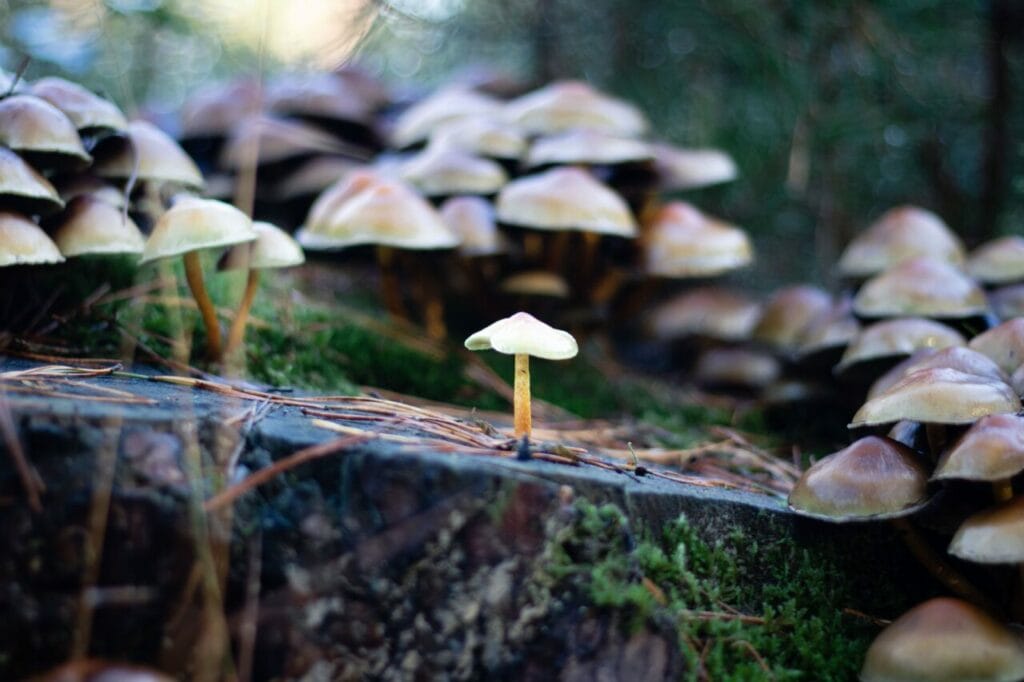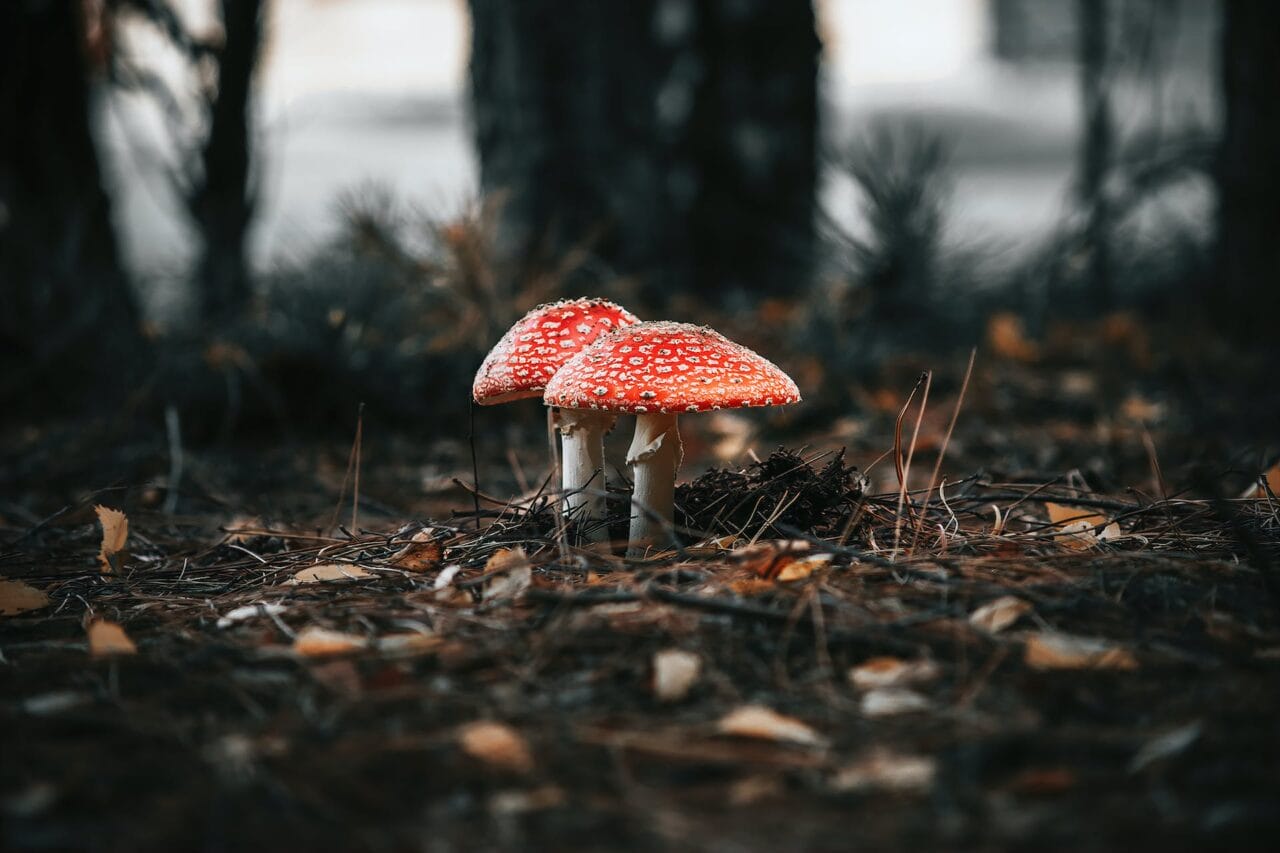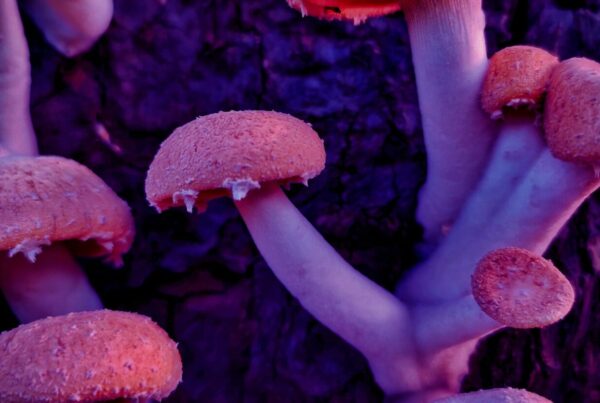Interest in psilocybin is increasing, driven by studies showcasing its potential advantages for mental health conditions such as anxiety and addiction. However, despite the escalating curiosity, acquiring psilocybin remains challenging. The number of labs and shroom delivery services offering magic mushrooms is limited, and the prices can be rather high.
This piece will delve into the evolution of psilocybin, its current status, and the potential benefits it presents to those seeking relief.
[toc]Key Takeaways:
- Mushroom cultivation requires considerable effort and strict monitoring to prevent contamination during the inoculation stage.
- Psilocybin triggers a psychedelic experience by interacting with various areas in the brain, particularly the serotonin receptors.
- Psilocybin causes a minor increase in heart rate, which typically normalizes shortly after intake, and generally does not result in other negative effects.

Ensuring the Highest Quality Magic Mushrooms
Magic mushrooms naturally thrive in diverse environments such as manure-enriched fields, leafy temperate forests, grasslands, and woodlands. Throughout history, people have ventured into these areas to collect these fungi for medicinal purposes or to use them in spiritual and religious rituals.
Traditional Approach
Today, the ancient practice of scavenging for mushrooms in these natural habitats has declined. This shift could be attributed to the introduction of alternative methods such as cultivation or the possibility to buy magic mushrooms online.
Mushrooms found in the wild tend to be less potent compared to lab-grown ones, which are carefully nurtured under controlled environments. Moreover, there’s a risk of accidentally picking a poisonous species when foraging in the wild.
Contemporary Approach
The shroom production process commences by maturing the spores. This is a complex procedure that requires a
Considerable effort and meticulousness are invested to prevent any potential contamination during the inoculation stage. Once the mushrooms reach the harvesting stage, they are usually dried by labs or cultivators to extend their shelf life. Fresh mushrooms have a lifespan of just a few days, but dried mushrooms can be stored for many months, and in some cases, up to a year.
Manufacturers process dried mushrooms into various forms such as microdose capsules, edibles, tinctures, and beverages. These products are then distributed across Canada through magic mushroom delivery services.
Capitalizing on the Advantages of Psilocybe Cubensis or Magic Mushrooms
A primary motive for conducting clinical trials on mushrooms is to explore their impact on mental health and mood disorders, as suggested by anecdotal evidence. Numerous studies have been conducted to examine these effects, from microdosing with capsules to embarking on a mushroom trip with dried mushrooms or chocolate edibles.
When consumed, psilocybin is converted into psilocin, a compound that acts similarly to serotonin, a critical neurotransmitter involved in mood regulation. It interacts with various areas of the brain, particularly the serotonin receptors, initiating a psychedelic journey.
Those who partake in psilocybin therapy often report profound changes that go beyond merely amplified senses and visual modifications. These experiences can result in a significant shift in self-perception and a deep alteration in personal perspective, often marked by profound insights.
Depression and Suicidal Thoughts
A study in the Journal of Psychopharmacology examined the effects of a psychedelic experience on individuals battling depression and suicidal thoughts. Most participants deemed their experience with psilocybin as significantly meaningful and stressed its potential influence on their lives. Given the crucial role of patient engagement in mental health interventions, such high levels of satisfaction could boost the effectiveness of therapy.
Safety Assessment
In addition to examining the effects of psilocybin on depression and anxiety, researchers also study its safety profile. A study in JAMA Psychiatry found that participants given psilocybin experienced a slight increase in heart rate and blood pressure two hours post-ingestion. However, further analysis using Holter monitoring revealed no significant increase in the risk of cardiac arrhythmias in the psilocybin group compared to the niacin group. The study also discovered no substantial psychological distress among users.
Further Reading:





